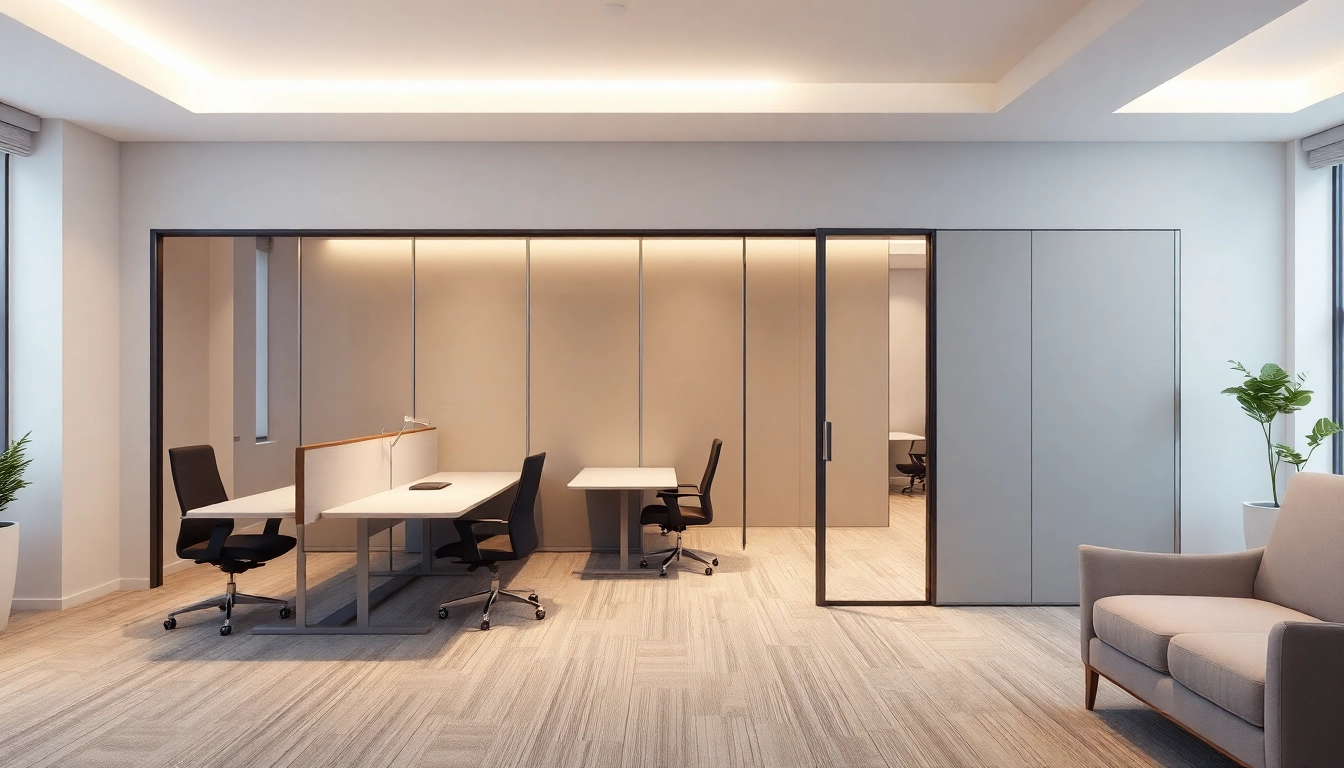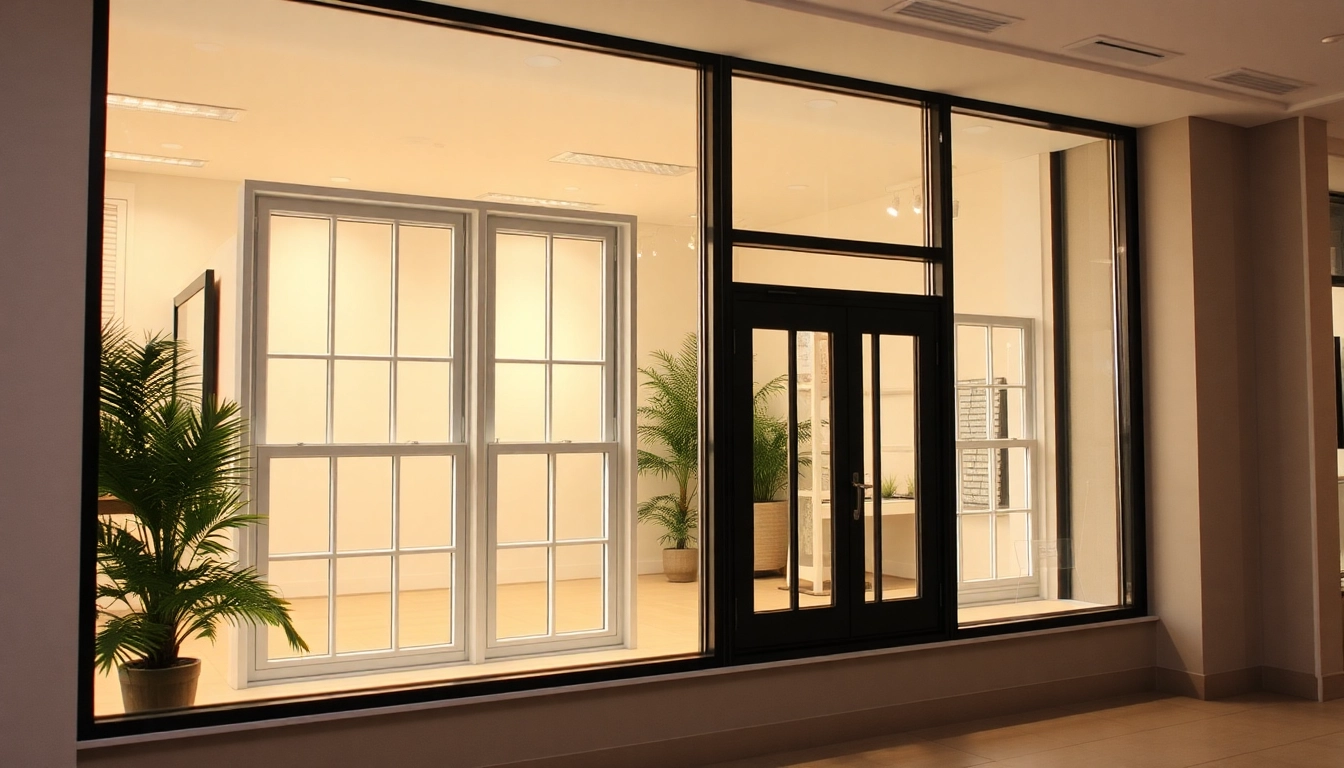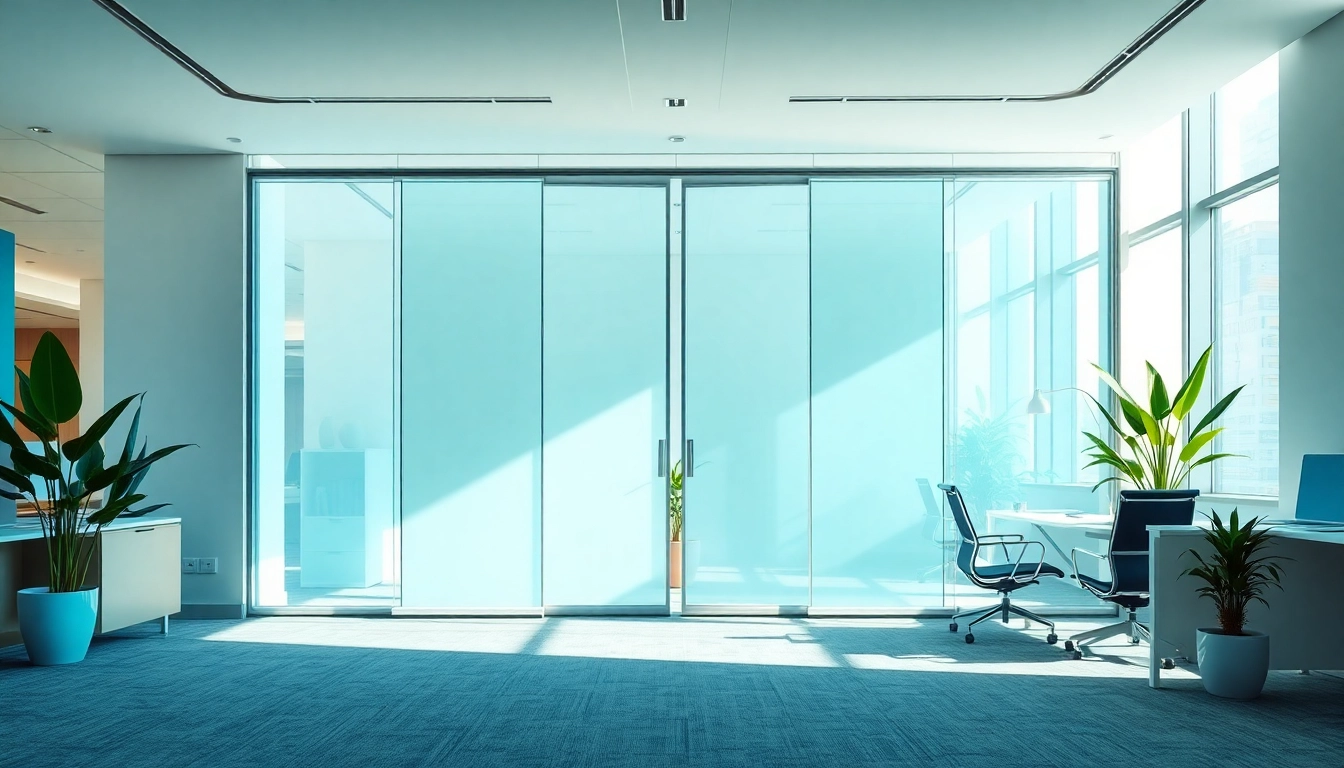Understanding Folding Partition Walls
In the evolving world of interior design and versatile space management, the significance of a Folding Partition Wall cannot be overstated. These innovative walls provide a flexible solution for dividing spaces, accommodating both the need for privacy and the desire for open areas. With a range of applications across various settings—from homes to commercial environments—folding partition walls are garnering attention for their adaptability and aesthetic appeal.
What is a Folding Partition Wall?
A folding partition wall is a movable structure that allows for the division of space into multiple areas while maintaining the option of reverting those areas back into a single open space. Typically, these partitions can be constructed from various materials, including wood, fabric, or glass, and are designed to be operable, meaning they can be opened or closed depending on the user’s needs.
Benefits of Using Folding Partition Walls
Folding partition walls transform static spaces into dynamic environments, offering numerous benefits:
- Flexibility: By allowing spaces to be reconfigured quickly and easily, they adapt to different activities or guest sizes.
- Sound Control: Acoustic folding partitions can significantly reduce noise between rooms, creating more private and focused environments.
- Cost-Effective: Instead of extensive remodeling, these partitions provide a low-cost alternative for space optimization.
- Aesthetic Versatility: Available in countless designs, colors, and materials to enhance any décor.
- Environmentally Friendly: Many folding partitions are crafted from sustainable materials, contributing to greener building practices.
Common Applications in Various Spaces
Folding partition walls are suitable for a variety of environments, including:
- Offices: Create conference rooms or collaborative spaces that can be transformed as needed.
- Schools: Utilize for classroom separation during exams or in multipurpose areas.
- Homes: Perfect for apartment living where open spaces can be segmented for privacy.
- Restaurants: Flexibly adjust dining areas based on customer flow or booking sizes.
- Convention Centers: Divide large halls into smaller venues for different events simultaneously.
Types of Folding Partition Walls
Acoustic vs. Non-Acoustic Options
When selecting folding partition walls, understanding the difference between acoustic and non-acoustic options is crucial:
- Acoustic Partition Walls: Designed with materials that absorb sound and reduce noise transmission, ideal for privacy in educational or office settings.
- Non-Acoustic Partition Walls: Basic walls that provide visual separation but do not significantly reduce sound, suitable for environments where noise control is not a priority.
Materials Used for Durability and Style
The materials used in folding partitions can dramatically affect their functionality and style. Common materials include:
- Wood: Offers a classic and warm look, perfect for more traditional settings.
- Fabric: Available in various colors and patterns, fabric-based partitions add softness and texture to a room.
- Glass: Provides a modern and sleek aesthetic while allowing light to flow between spaces.
- Metal: Often used for durable, industrial-style environments, providing resilience and robustness.
Custom Solutions for Unique Needs
Many providers offer custom solutions tailored to specific needs, whether it’s an irregular space, specialized functions, or branding requirements. These custom solutions might include:
- Unique sizes and configurations to fit unconventional layouts.
- Customized finishes that align with corporate branding or personal taste.
- Integrated technology, such as sliding mechanisms or automated features.
Installation Guide for Folding Partition Walls
Preparation and Planning Steps
Proper installation of folding partition walls is crucial for their performance and longevity. Here are key steps to consider:
- Measure Your Space: Accurately assess wall length and height, considering electrical outlets, doorways, and windows.
- Choose the Right Type: Select features such as acoustic insulation, material, and finishes based on your environment’s needs.
- Consult Professionals: Engaging with experts ensures you get tailored advice and guidelines for installation.
Hiring Professionals vs. DIY Installation
While DIY installation might seem cost-effective, the complexity of folding partition walls often necessitates professional help. Professionals can:
- Ensure proper fitting and function, particularly with acoustics.
- Handle potential complications with structural integrity or technology integrations.
- Provide warranties and after-installation support which can be beneficial in the long term.
Maintenance Tips for Longevity
To prolong the life of folding partition walls, regular maintenance is crucial. Consider these practices:
- Clean surfaces regularly with appropriate products based on materials used.
- Inspect hardware components like tracks and hinges for wear and tear.
- Address any gaps or issues promptly to prevent damage.
Comparing Competitors: Choosing the Right Product
Leading Brands and Their Offerings
The market offers various brands and products; understanding what each brings can guide informed decisions. Some noteworthy contenders include:
- Versare: This brand focuses on adaptable solutions with a variety of partition styles.
- Modernfold: Known for innovation, offering both movable walls and operable partitions with strong acoustical properties.
- Hufcor: Global leader providing efficient solutions tailored for commercial spaces.
- Raydoor: Offers elegant folding walls with a focus on interior design aesthetics.
Feature Comparison: What to Look For
When selecting a folding partition wall, consider comparing the following features:
- Sound Insulation: Ratings can vary; ensure it meets your confidentiality needs.
- Ease of Use: Evaluate how easily the system can be manipulated.
- Durability: Investigate material quality and warranty options.
- Aesthetics: Match the design and color to your existing décor.
Customer Reviews and Experiences
Researching customer reviews can provide anecdotal evidence on product performance. Look for:
- User testimonials on durability and performance.
- Common issues faced by customers, and how they were addressed.
- Expert reviews that provide objective insights into different brands.
Maximizing the Utility of Folding Partition Walls
Creative Ways to Use Space Efficiently
Employing folding partition walls strategically can lead to innovative space usage:
- Utilize them as temporary settings for events, enabling seamless transitions.
- Create flexible workspaces that adapt as teams grow or shrink.
- In hospitality, allow for customizable dining experiences based on reservation traffic.
Case Studies: Successful Implementations
Numerous organizations have successfully implemented folding partitions to enhance their functional capabilities. For instance:
- A university utilized folding partitions to transform a single lecture hall into multiple classrooms, increasing its usage rate by 40%.
- A major hotel chain adopted glass folding partitions in meeting rooms, boosting event bookings due to improved aesthetics and functionality.
Future Trends in Partition Wall Technologies
As technology advances, so does the evolution of partition walls. Future trends include:
- Smart Partitions: Integration of technology to automate opening/closing, controlling acoustics, and enhancing energy efficiency.
- Sustainable Materials: Greater emphasis on eco-friendly materials in manufacturing processes to promote greener choices.
- Customizability: More brands are expected to offer personalized designs and functionalities to meet specific user requirements.


